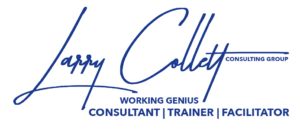Understanding the Role of Artificial Intelligence in the Modern World
Impacts of Artificial Intelligence
Artificial Intelligence (AI) has become an integral part of the modern world, influencing various aspects of our daily lives. From virtual assistants and personalized recommendations to autonomous vehicles and predictive analytics, AI technologies are transforming industries and shaping the way we live and work.
Ethical Considerations
As AI continues to advance and become more sophisticated, ethical considerations surrounding its use have come to the forefront. Issues such as bias in algorithms, data privacy, and the impact of AI on jobs and society raise important questions that need to be addressed to ensure responsible and fair deployment of AI technologies.
Future Prospects
Looking ahead, the role of AI in the modern world is likely to expand even further, with advancements in areas such as machine learning, natural language processing, and computer vision. As AI capabilities continue to evolve, it will be crucial for researchers, policymakers, and industry leaders to collaborate and develop frameworks that promote innovation while upholding ethical standards and societal well-being.
Unveiling the Core Characteristics of Genius Level Performance
Identifying Exceptional Performance
Genius level performance is characterized by a unique combination of traits that set individuals apart in their field. This can include exceptional problem-solving abilities, creativity, persistence, and a deep passion for their work. Those who exhibit genius level performance often excel in their chosen domain, pushing the boundaries of what is possible and inspiring others with their achievements.
Cultivating a Growth Mindset
One key aspect of genius level performance is the ability to maintain a growth mindset. This means being open to new ideas, willing to learn from failures, and constantly seeking ways to improve. Individuals who possess a growth mindset are more likely to overcome obstacles and continue to develop their skills over time, ultimately reaching new heights of achievement.
The Role of Discipline and Hard Work
While natural talent certainly plays a role in genius level performance, the importance of discipline and hard work cannot be overstated. Many geniuses attribute their success to years of dedicated practice, focused effort, and a commitment to continual self-improvement. By cultivating a strong work ethic and staying disciplined in their pursuits, individuals can set themselves on a path to achieving greatness in their chosen field.
The Interplay Between Artificial Intelligence and Human Intelligence
Collaboration and Learning
One of the most promising aspects of the interplay between artificial intelligence and human intelligence is the potential for collaboration and continuous learning. AI systems can complement human capabilities by processing vast amounts of data quickly and efficiently, enabling humans to focus on more complex problem-solving and creative tasks. Similarly, humans can provide AI with feedback and guidance to improve its capabilities over time, creating a symbiotic relationship that enhances overall performance.
Ethical Considerations
As artificial intelligence continues to advance, ethical considerations become increasingly important in the interplay with human intelligence. It is essential to establish boundaries and guidelines to ensure that AI systems are used responsibly and ethically. Humans play a crucial role in defining these ethical frameworks, as they are inherently responsible for the decisions made by AI systems. Transparency, fairness, and accountability are key principles that must be upheld to ensure a harmonious interaction between AI and human intelligence.
Creative Innovation
One of the most exciting possibilities in the interplay between artificial intelligence and human intelligence is the potential for creative innovation. AI systems can assist humans in generating new ideas, exploring alternative solutions, and pushing the boundaries of creativity. By leveraging the strengths of both AI and human intelligence, groundbreaking innovations and discoveries can be achieved that may have been unattainable through either intelligence alone. This collaborative approach to creativity holds tremendous promise for advancing fields such as art, science, and technology.
Exploring the Six Distinct Types of Working Genius
The Concept of Working Genius in Artificial Intelligence
Before delving into the six distinct types of working genius in the realm of artificial intelligence, it is essential to understand the concept of working genius itself. Working genius refers to unique sets of skills and attributes that individuals possess, enabling them to excel in certain tasks and roles.
Application of Working Genius in AI Development
When we apply the concept of working genius to the field of artificial intelligence, we can identify specific types of genius that are key to the development and advancement of AI technology. Each type of working genius plays a crucial role in various stages of AI development and implementation.
Exploring the Six Distinct Types of Working Genius
1. Conceptual Genius: Individuals with a strong conceptual genius excel at envisioning the bigger picture, identifying patterns, and developing innovative ideas that drive AI innovation forward.
2. Strategic Genius: Those with a strategic genius possess the ability to plan and execute complex projects, foresee obstacles, and navigate challenges effectively in the AI development process.
3. Creative Genius: Creative geniuses bring a fresh perspective to AI development by generating new ideas, designing inventive solutions, and pushing the boundaries of technological possibilities.
4. Relational Genius: Individuals with relational genius excel at fostering collaboration, building meaningful connections, and creating a positive work environment in AI research teams.
5. Operational Genius: Operational geniuses are detail-oriented individuals who excel at managing tasks efficiently, optimizing processes, and ensuring that AI projects run smoothly.
6. Analytical Genius: Analysts with exceptional analytical genius possess strong problem-solving skills, data interpretation abilities, and a keen eye for accuracy in analyzing AI algorithms and models.
Applications and Implications of Working Genius in AI Development
Integration of Working Genius in AI Development
Integrating the concepts of the 6 types of working genius into artificial intelligence development can have profound implications. By recognizing and incorporating elements such as Wonder, Tenacity, Discernment, Optimization, Collaboration, and Harvesting into AI systems, developers can create more efficient and effective solutions.
Enhancing Problem-Solving Capabilities
By leveraging the working genius framework in AI development, researchers can enhance problem-solving capabilities of artificial intelligence systems. Wonder can inspire innovation, Tenacity can drive perseverance in overcoming challenges, Discernment can improve decision-making processes, Optimization can lead to more streamlined operations, Collaboration can foster teamwork among AI components, and Harvesting can ensure the utilization of successful outcomes.
Ethical Considerations in AI Application
Considering the ethical implications of AI applications is crucial in the development process. By incorporating elements of Working Genius, developers can ensure that AI systems are designed and utilized in a responsible manner. Ethical considerations such as fairness, transparency, bias mitigation, and accountability can be addressed by applying the principles of Wonder, Tenacity, Discernment, Optimization, Collaboration, and Harvesting within AI technology.


